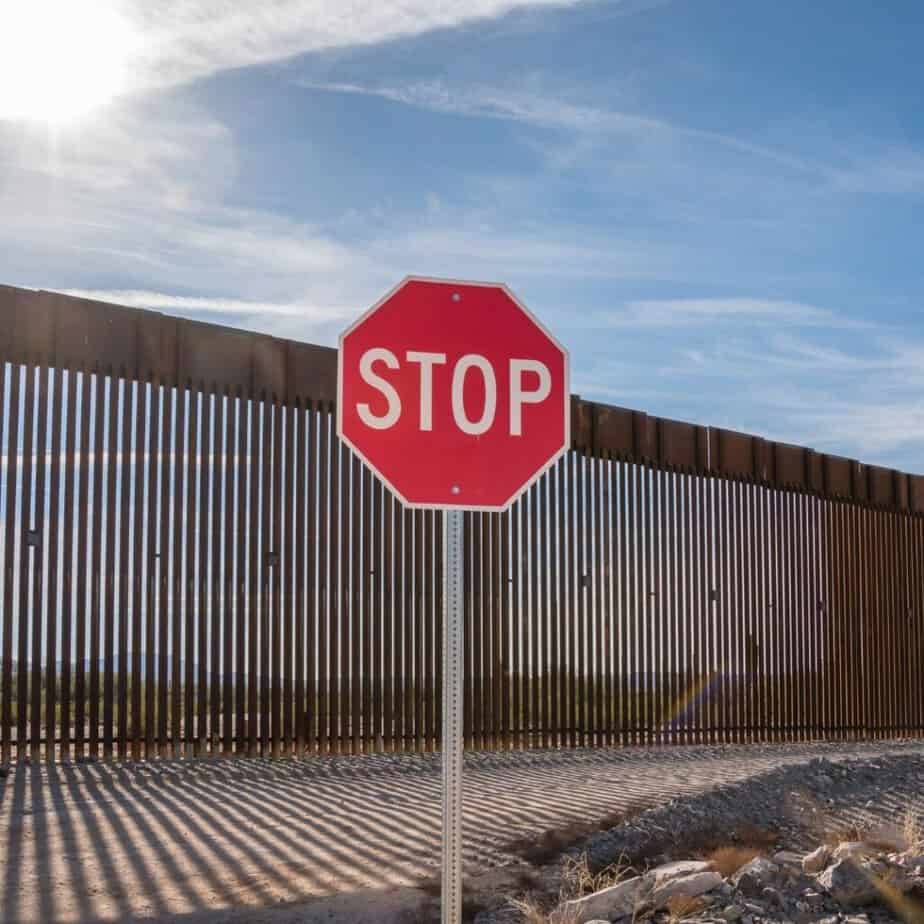Introduction
Introduction: What the Bible Says About Caring for the Poor
What does the Bible say about caring for the poor? It’s a question that goes far beyond charity drives or Sunday sermons—it’s an essential issue for Christians seeking to reflect God’s heart in a broken world. From the Old Testament to the New Testament, Scripture is clear: God calls His people to care for the poor, but doing so in today’s society can feel complicated.
How do we balance generosity with wisdom? How do we honor God’s commands while navigating real-world challenges like immigration policies, welfare systems, and personal responsibility? These aren’t easy questions, and Christians often find themselves pulled in different directions.
That’s why this post matters. We’ll explore seven biblical principles about caring for the poor—principles that not only illuminate God’s priorities but also give us practical tools to live them out. Along the way, we’ll tackle tough questions, uncover surprising truths, and find encouragement to act with both compassion and discernment.
This is more than a Bible study—it’s a call to action. Whether you’re part of a church deciding how to use its resources or wondering how to help the poor in your own backyard, you’ll find clarity and inspiration here. Don’t miss it—what we’ll uncover could transform how you see God’s commands, your role as a Christian, and the world around you.
7 Biblical Principles for Caring for the Poor
As we explore what the Bible says about caring for the poor, these seven principles provide a roadmap for living out God’s call with clarity and compassion. Below is a quick overview of these truths. Each principle reflects a specific aspect of God’s heart for the poor, and we’ll dive deeper into them in the rest of this post.
| Principle | Summary |
|---|---|
| 1. God’s Heart for the Poor | God’s compassion for the poor is central to His character, and we are called to reflect His heart. |
| 2. Caring for the Poor Is a Command | The Bible commands us to care for the poor as an act of obedience and worship. |
| 3. The Dignity of Work | Helping the poor includes empowering them to work and regain dignity. |
| 4. Sharing from the Harvest | Biblical gleaning laws remind us to share resources generously and intentionally. |
| 5. Generosity Reflects the Kingdom | Our generosity reveals God’s love and the values of His kingdom. |
| 6. Justice and Advocacy | We are called to correct oppression and advocate for the vulnerable. |
| 7. The Eternal Perspective | Caring for the poor is an act of eternal worship that points to God’s grace. |
Principle 1: God’s Heart for the Poor
If you want to understand how God feels about the poor, you don’t need to look far in Scripture. From Genesis to Revelation, God’s heart for the poor is unmistakable. He isn’t a distant deity who overlooks suffering—He’s a compassionate Father who draws near to those in need.
Psalm 113:7 beautifully captures this truth: “He raises the poor from the dust and lifts the needy from the ash heap.” Picture that for a moment. God doesn’t just acknowledge the poor—He reaches down, lifting them from the lowest places of life. This verse paints a vivid picture of God’s grace in action: He doesn’t abandon those in the ash heap; He restores their dignity and gives them hope.
Isaiah 25:4 reinforces this theme: “You have been a refuge for the poor, a refuge for the needy in their distress, a shelter from the storm and a shade from the heat.” Here, God is described as a protector and provider, offering safety and relief to the vulnerable. These verses remind us that God not only cares about physical needs but also about the emotional and spiritual burdens of the poor.
Why does this matter to us? Because caring for the poor isn’t just about meeting needs—it’s about reflecting the very heart of God. When we extend a helping hand to someone in need, we participate in God’s work of lifting the poor from the “ash heap” and restoring their hope.
As Christians, we’re called to be His hands and feet in the world. And just as He pours out compassion, so should we. Reflecting God’s heart in this way isn’t always convenient, but it’s always worth it. After all, when we care for the poor, we’re not just doing a good deed—we’re pointing others to the God who sees, loves, and saves.
Principle 1: God’s Heart for the Poor
If you want to understand what the Bible says about caring for the poor, you don’t need to look far in Scripture. From Genesis to Revelation, God’s heart for the poor is unmistakable. He isn’t a distant deity who overlooks suffering—He’s a compassionate Father who draws near to those in need.
Psalm 113:7 beautifully captures this truth: “He raises the poor from the dust and lifts the needy from the ash heap.” Picture that for a moment. God doesn’t just acknowledge the poor—He reaches down, lifting them from the lowest places of life. This verse paints a vivid picture of God’s grace in action: He doesn’t abandon those in the ash heap; He restores their dignity and gives them hope.
Isaiah 25:4 reinforces this theme: “You have been a refuge for the poor, a refuge for the needy in their distress, a shelter from the storm and a shade from the heat.” These verses are just a glimpse of what the Bible says about caring for the poor. They show God as a protector and provider, offering safety and relief to the vulnerable. God not only cares about physical needs but also about the emotional and spiritual burdens of the poor.

Why does this matter for us? Because caring for the poor isn’t just about meeting needs—it’s about reflecting the very heart of God. When we extend a helping hand to someone in need, we participate in God’s work of lifting the poor from the “ash heap” and restoring their hope.
As Christians, we’re called to be His hands and feet in the world. And just as He pours out compassion, so should we. Reflecting God’s heart in this way isn’t always convenient, but it’s always worth it. After all, when we care for the poor, we’re not just doing a good deed—we’re pointing others to the God who sees, loves, and saves.
Organizations You Can Support to Help the Poor
- Samaritan’s Purse – Provides disaster relief, medical aid, and community development.
- World Vision International – Focuses on child sponsorship, education, and health programs.
- Bright Hope – Partners with churches to transform communities living in extreme poverty.
- The Salvation Army – Offers food distribution, disaster relief, and rehabilitation programs.
- Food for the Hungry – Works to end poverty through emergency relief and development programs.
Principle 2: Caring for the Poor Is a Command, Not a Suggestion
Caring for the poor isn’t optional in God’s eyes. It’s not something reserved for the spiritually elite or the particularly generous—it’s a direct command woven throughout Scripture. From the earliest laws given to Israel to the teachings of Jesus, God makes it clear: His people are called to care for the poor.
Take Deuteronomy 15:11, for example: “There will always be poor people in the land. Therefore, I command you to be openhanded toward your fellow Israelites who are poor and needy in your land.” Notice the language here—God doesn’t suggest generosity; He commands it. The word “openhanded” speaks to a heart posture of generosity, a willingness to share without reservation or judgment.
Proverbs 14:31 echoes this command, reminding us that our treatment of the poor reflects our attitude toward God Himself: “Whoever oppresses the poor shows contempt for their Maker, but whoever is kind to the needy honors God.” In other words, how we respond to those in need reveals whether we’re truly honoring God.
Jesus amplifies this call in Matthew 25:40 when He says, “Whatever you did for one of the least of these brothers and sisters of mine, you did for me.” Here, Jesus identifies so closely with the poor that caring for them is equated with serving Him directly. That’s a profound statement that leaves no room for indifference.
For Christians, obedience to God’s commands is an act of worship, not a burden. While it’s easy to feel overwhelmed by the scale of poverty in the world, God doesn’t call us to solve every problem. Instead, He invites us to trust Him and take action where we can. Whether it’s donating resources, volunteering time, or simply showing kindness to someone in need, every act of obedience matters.
When we embrace this command, we step into God’s greater story. Our care for the poor becomes a reflection of His kingdom—a kingdom where generosity flows freely, dignity is restored, and every need is met in Him. It’s a reminder that what the Bible says about caring for the poor isn’t just a suggestion for those with extra resources—it’s a call for all believers to live out their faith through active compassion.
This principle challenges us to see caring for the poor not as an occasional act of kindness but as a lifestyle of obedience that reflects the heart of God. By embracing this command, we demonstrate God’s love to a watching world and participate in His redemptive work.
Principle 3: The Dignity of Work and Responsibility
What the Bible says about caring for the poor goes beyond simply meeting immediate physical needs—it also highlights the importance of helping people reclaim their God-given dignity. One of the most empowering ways to do this is by encouraging and equipping those who can work to provide for themselves. While compassion is essential, the Bible emphasizes the value of responsibility and the dignity that comes from meaningful work.
As Christians, we’re called to offer more than temporary fixes; we’re called to empower. The role of the church in what the Bible says about caring for the poor extends beyond providing material possessions and food. It’s about offering a helping hand that lifts people up and equips them for the future. Many ministries today are doing this effectively by offering job training, financial literacy programs, and mentorship opportunities to those in need.
Take, for example, a church that runs a community skills program, teaching individuals how to write resumes, ace interviews, or start small businesses. Or consider ministries that provide tools like microloans, empowering people to create sustainable income streams. These initiatives don’t just address physical needs—they restore hope, confidence, and purpose.

This principle reminds us that caring for the poor involves both generosity and wisdom. When we provide resources and training that help others stand on their own, we’re reflecting God’s heart and equipping people to flourish in the way He intended.
At the same time, we must remember that not everyone is in a position to work. Illness, disability, or other circumstances can limit someone’s ability to provide for themselves. In those cases, our response should be one of grace, recognizing that meeting their needs is no less valuable.
Ultimately, balancing care with empowerment reflects the love and wisdom of God. What the Bible says about caring for the poor challenges us to address both immediate needs and long-term solutions, honoring Him and bringing dignity to those He calls us to serve.
Principle 4: Sharing from the Harvest
Generosity has always been part of God’s plan for His people, and the Old Testament offers a beautiful model for how we’re called to care for the poor through sharing what we’ve been given. One of the most vivid examples comes from the principle of gleaning.
In Leviticus 23:22, God commands the Israelites: “When you reap the harvest of your land, do not reap to the very edges of your field or gather the gleanings of your harvest. Leave them for the poor and for the foreigner residing among you. I am the Lord your God.” This wasn’t just a suggestion—it was a built-in safeguard to ensure that the poor and vulnerable always had access to the basics of life.
Ruth’s story offers a powerful example of how this worked in practice. After her husband’s death, Ruth, a Moabite widow, relied on gleaning to provide for herself and her mother-in-law, Naomi. Ruth’s humble work in the fields of Boaz didn’t just meet her immediate needs; it positioned her within God’s greater plan of redemption, eventually becoming part of the lineage of Christ (Ruth 4:13-17).
But how do we apply these principles today when most of us don’t own fields or harvest grain? The heart of this command is generosity in abundance and planned giving. It’s about intentionally leaving room in our budgets, resources, and lives to provide for those in need.
For example, a family might set aside a portion of their income each month specifically for charitable giving. A business could commit a percentage of its profits to local food banks or shelters. Churches can organize events like “gleaning projects,” where members volunteer to gather surplus food from farms or markets to distribute to the poor.
Churches can organize events like “gleaning projects,” where members volunteer to gather surplus food from farms or markets to distribute to the poor.
The principle of sharing from the “edges of your field” reminds us to look beyond our own needs and consider how our blessings can benefit others. Whether it’s our time, talents, or treasure, we’re called to give with open hands, trusting that God will use what we share to meet the needs of others.
In a culture often driven by accumulation and scarcity, this practice challenges us to live counter-culturally. It’s a reminder that what the Bible says about caring for the poor isn’t just about meeting immediate needs—it’s an opportunity to reflect God’s heart of provision and care for the poor while pointing others to His ultimate generosity can benefit others. Whether it’s our time, talents, or treasure, we’re called to give with open hands, trusting that God will use what we share to meet the needs of others.

Principle 5: A Heart of Generosity Reflects the Kingdom of God
Generosity is more than an act of kindness; it’s a reflection of the Kingdom of God breaking into our world. What the Bible says about caring for the poor highlights this truth, showing that generosity is central to God’s plan for His people. When God’s people give generously, they display the values of His kingdom—love, selflessness, and trust in His provision. It’s no wonder Jesus spoke so frequently about the transformative power of giving.
In Luke 12:33-34, Jesus challenges His followers with these words: “Sell your possessions and give to the poor. Provide purses for yourselves that will not wear out, a treasure in heaven that will never fail, where no thief comes near and no moth destroys. For where your treasure is, there your heart will be also.” Generosity, in this context, is not about losing something but gaining something eternal—a heart fully aligned with God’s priorities.
This transformation is evident in the early church. Acts 2:44-45 paints a beautiful picture of believers living out kingdom values: “All the believers were together and had everything in common. They sold property and possessions to give to anyone who had need.” Their generosity wasn’t forced; it was the natural overflow of hearts changed by God’s grace.
But what does it mean for us today? What the Bible says about caring for the poor reminds us that true generosity comes from recognizing that everything we have belongs to God. When we give, whether it’s financial resources, time, or energy, we reflect the grace He has already given us. 2 Corinthians 9:7 reminds us, “God loves a cheerful giver.” This kind of giving isn’t begrudging or calculated—it’s joyful and free, born out of gratitude for all that God has done.
Generosity also builds community and reveals God’s goodness to others. It shows the world that the Kingdom of God is not about hoarding or self-preservation but about radical love and trust. As we engage in “good works” and meet the needs of others, we participate in God’s mission to renew and restore His creation.
The beauty of kingdom generosity is that it isn’t measured by the size of the gift but by the heart behind it. A small act of kindness, a sacrificial donation, or even an encouraging word can ripple outward in ways we can’t predict. When our giving reflects God’s love, it points others to Him and expands the reach of His kingdom.
Principle 6: Justice and Advocacy for the Oppressed
What the Bible says about caring for the poor goes beyond individual acts of kindness—it calls for justice and advocacy on behalf of the oppressed. Poverty is not always the result of personal choices; it is often tied to systemic issues that perpetuate inequality and hardship. As Christians, we are called to address these deeper injustices and be a voice for those who cannot speak for themselves.
Isaiah 1:17 makes this clear: “Learn to do good; seek justice, correct oppression; bring justice to the fatherless, plead the widow’s cause.” This verse captures the heart of God’s call for His people to actively confront systems and practices that harm the vulnerable. Correcting oppression and seeking justice are not optional for believers—they are an integral part of living out our faith.
The church has a unique role in this work. Speaking out against injustice and advocating for systemic change are ways the body of Christ can demonstrate the love of God to a watching world. Ministries that fight human trafficking, combat predatory lending practices, or work to end food deserts are examples of how churches can address the “chains of injustice” (Isaiah 58:6) that bind so many people in poverty.
However, justice isn’t only about large-scale activism; it also requires personal action. Advocating for the poor includes how we treat the “needy neighbor” right in front of us. Whether it’s mentoring a struggling family, supporting fair business practices, or simply voting with biblical values in mind, every action we take can be part of God’s restorative work.
At the same time, we must remember that addressing systemic poverty doesn’t replace the need for individual compassion. God calls us to correct oppression while also caring for the immediate needs of those around us. A balanced approach reminds us that advocacy and personal action go hand in hand.
Ultimately, what the Bible says about caring for the poor is not just about meeting physical needs but about working toward a society where justice and compassion are the norm. When we stand up for the oppressed and offer practical help to the needy, we reflect God’s heart for justice and His desire to restore dignity to all people.
Principle 7: The Eternal Perspective on Caring for the Poor
What the Bible says about caring for the poor goes beyond meeting physical needs—it calls us to address their eternal condition as well. While providing food, clothing, and shelter is vital, we must not stop there. True compassion requires sharing the good news of Jesus Christ, offering the forgiveness of sins and the eternal hope found only in Him.
Jesus reminds us of this eternal perspective in Luke 14:13-14: “But when you give a banquet, invite the poor, the crippled, the lame, the blind, and you will be blessed. Although they cannot repay you, you will be repaid at the resurrection of the righteous.” These words point to the ultimate hope beyond this life: the invitation to join God’s kingdom. As Christians, we have the incredible privilege of not only meeting immediate needs but also offering the eternal hope of salvation.
Caring for the poor is incomplete if we fail to share the gospel. Without Jesus, even the best earthly provision is temporary. Proverbs 19:17 assures us, “Whoever is kind to the poor lends to the Lord, and he will reward them for what they have done.” But the greatest reward is leading someone to the ultimate Provider—the One who forgives sins, transforms lives, and promises eternal joy in His presence.
Passages like Matthew 25:31-46 remind us that how we treat the least of these reflects our relationship with Christ. While our acts of kindness point to God’s love, they must also be accompanied by a clear call to receive Jesus as Savior. Only in Him can the poor—and all of us—find the lasting hope of restoration and redemption.
As we care for the poor, let’s remember the urgency of their spiritual need. Offer a kind word, a listening ear, and practical help, but don’t stop there. Communicate the gospel clearly: that Jesus died for their sins, rose again to give them life, and invites them into a relationship with Him. There is no greater gift we can offer than the eternal hope found in Christ.
In the end, what the Bible says about caring for the poor is deeply tied to eternal purpose. When we meet physical needs and share the gospel, we reflect God’s heart, point others to His grace, and participate in His mission to redeem the world.
Addressing Practical Concerns and Tensions
Caring for the poor is a biblical command, but living it out can be challenging in today’s complex world. Immigration debates, economic policies, and questions about personal responsibility often leave Christians wondering how best to respond. What the Bible says about caring for the poor is clear, but navigating these real-world tensions requires both truth and grace.
One challenge lies in balancing generosity with wisdom. Many Christians wrestle with how to help those in need without enabling harmful patterns. Others may feel torn between their desire to give and concerns about broader systemic issues, like immigration policies or economic inequality. For example, how do we show compassion to the poor today while still supporting laws and systems that promote fairness and order? These are difficult questions that often lack easy answers.

As believers, we should stand on our principles and live out our convictions, and when we disagree on the “how” or what methods to help the poor, we mist nonetheless take action in helping the poor in ways that align with what believe God is asking us to do.
Prayer plays a vital role in navigating these tensions. Asking for God’s wisdom helps us discern when to give, how to act, and how to advocate for justice without becoming overwhelmed. Whether it’s helping a struggling family, supporting policies that address poverty, or simply listening to someone’s story, prayer keeps our hearts aligned with God’s will.
We must also remember the theological reason behind our actions: caring for the poor reflects God’s heart. This truth calls us to generosity and compassion, even when it feels inconvenient or countercultural. When we seek to follow God’s commands with humility and love, He uses our efforts to bring hope and healing to a broken world.
In the end, caring for the poor isn’t about solving every problem or choosing sides in political debates. It’s about living faithfully, trusting God to guide us as we seek to reflect His love. By holding both truth and grace, we can navigate these challenges with courage and compassion, knowing that our efforts, however small, honor Him and bless others.
Conclusion: Living Out What the Bible Says About Caring for the Poor
Caring for the poor is not just a suggestion; it’s a reflection of God’s heart and a central part of our faith. Throughout Scripture, we see that what the Bible says about caring for the poor is clear: it’s a command that demonstrates God’s love, justice, and grace. When we extend compassion to those in need, we reflect His character and participate in His redemptive work.
But it’s not always easy. The challenges of living in a complex, divided world can make generosity feel overwhelming or even daunting. Yet, God calls us to trust Him as we step out in faith—whether it’s through meeting immediate physical needs, addressing systemic injustices, or simply showing kindness to someone in need.
So, how will you care for the poor in your context? Maybe it starts with a small act: donating to a local food bank, volunteering your time, or listening to the story of someone who feels overlooked. Or perhaps it’s about challenging yourself to think bigger—advocating for justice, supporting ministries that empower others, or leaving the “edges of your field” for those in need.
Whatever your next step looks like, take it with joy and purpose, knowing that your obedience matters to God. Every time you act in love, you point others to Him and reflect the grace of our Lord Jesus Christ.
Let’s be people who live out what the Bible says about caring for the poor—not just with our words but with our hands, our hearts, and our lives. Together, we can reflect His kingdom and make a difference that echoes into eternity.





Leave a Reply